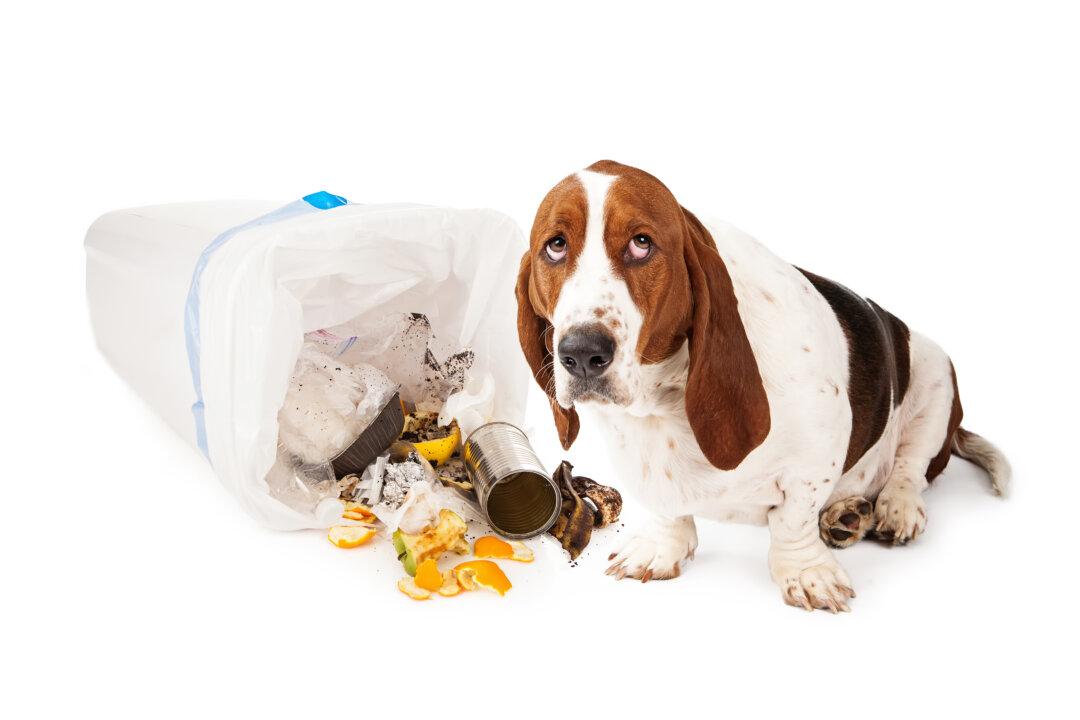Q: When Dobby, my roommate’s family dog, visits us, he sometimes gets into the trash. My roommate says scolding him after I find trash on the floor isn’t effective. Is this true?
Yesterday, I found Dobby knee-deep in trash on the kitchen floor. Even though I didn’t yell, Dobby rolled over and showed his belly, so I’m sure he knew what he'd done was wrong. How do we deal with this problem?





